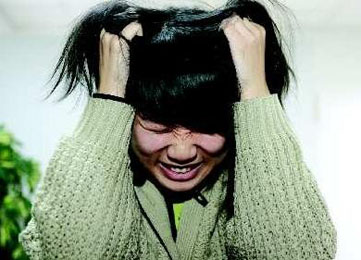
Every healthy person has experienced some form of depression in his or her life. It is a healthy response to overwhelming events in our lives. When we are healthy, physically and mentally, we can usually bounce back from a depressed state within a couple of weeks, and continue on with our normal lives. But when feelings become persistent and occur without precipitating factors, true depression may set in.
Every healthy person has also experienced anxiety in their life. We all know what it feels like to be anxious. "Butterflies" in the stomach when one is preparing for a job interview, meeting new people, or speaking in public are quite common, normal, and can be positive. Anxiety can be a positive reaction that helps prepare individuals for situations that are uncertain. But when anxiety is persistent, and exhibited in unwarranted situations, this positive emotion interferes with and limits our daily activities.
Many people may feel a combination of anxiety and depression. They may tend to be depressed, tired, and have difficulty making decisions or focusing during the day, and feel anxious, restless, and "shaky" at night.
Chinese medicine recognizes a powerful interplay between the body and emotions; the two are, in fact, inseparable. When we become emotionally upset, our internal environment also becomes disrupted, leading to the physical symptoms of anxiety and depression. When we are physically compromised, our emotions can be greatly affected.
According to Chinese medical theories, depression and anxiety are often the result of an imbalance or blockage in the body's energetic organ meridian systems. If the Qi becomes obstructed or the quality becomes insufficient, emotional upset, anxiety/depression, illness and disease may occur. Many things may cause the Qi to become blocked or insufficient: physical trauma, emotional trauma, hereditary weakness, poor diet, and chemical, physical and emotional stress.